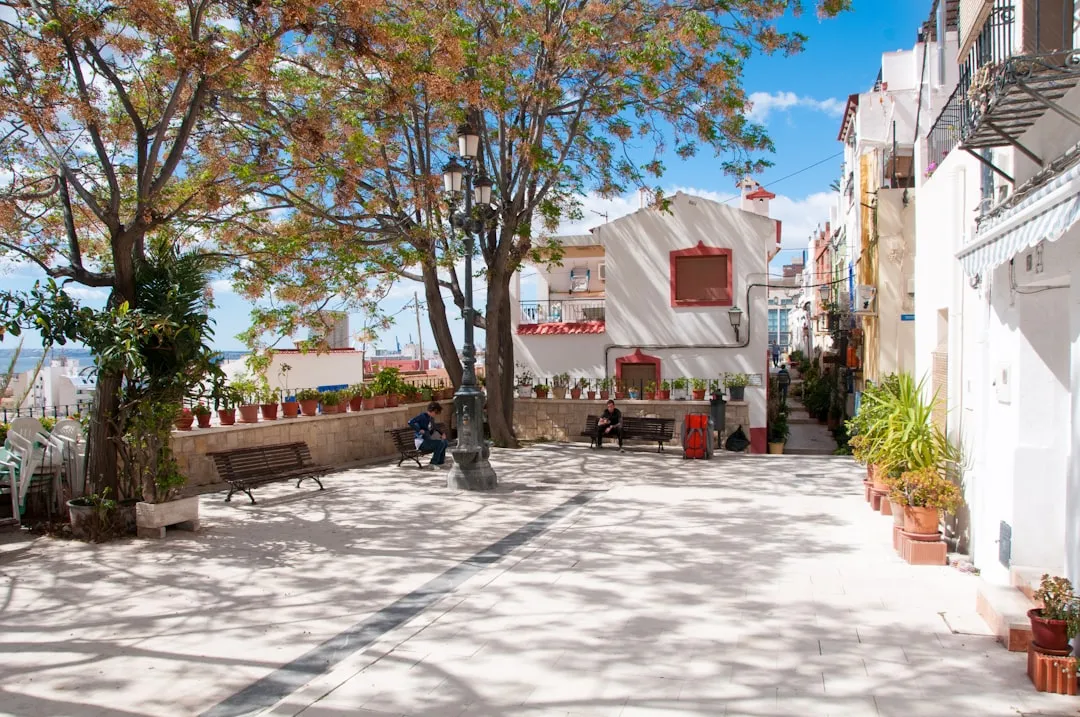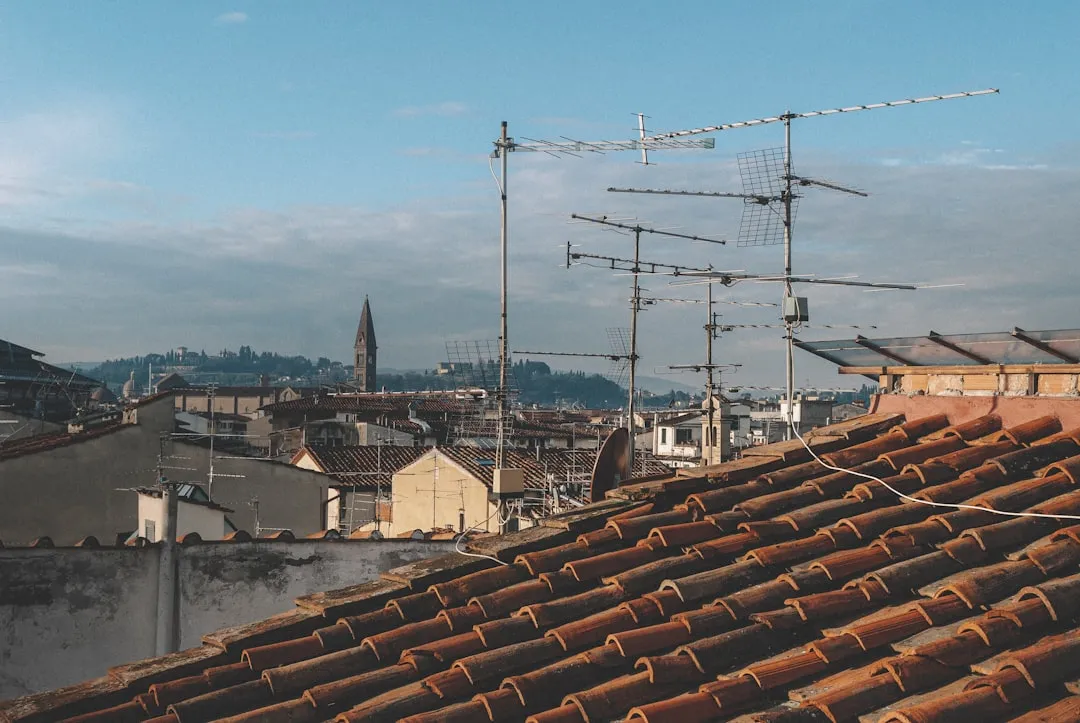How to Buy a House in Spain: A Step-By-Step Guide
A step-by-step guide for expats on buying a house in Spain, covering research, NIE number, budget, lawyer, offer, due diligence, final contract, fees, taxes, and registration.

Image by Joseph Corl

Fabrizio
Movyzen Co-Founder
Table of Contents
With its beautiful landscapes, warm climate, and welcoming communities, Spain is a dream destination for many people looking to purchase a home. Whether you're seeking a vacation property along the Mediterranean coast or a permanent residence in a historic city, buying property in Spain can be a rewarding investment. This guide provides a step-by-step overview of the process and the essential documentation needed to buy a house in Spain.
1. Research the Market and Choose Your Ideal Location
Spain offers a diverse range of locations and property types. Begin by exploring different regions, considering factors such as climate, local amenities, transportation links, and the overall lifestyle you desire. Whether you’re interested in a coastal area, a bustling city, or a quieter rural setting, each area has its unique appeal and real estate options.
- Tip: Research property prices in your preferred area to understand the market value and avoid overpaying.
2. Obtain a Spanish NIE Number
The Número de Identificación de Extranjero (NIE) is a tax identification number required for foreigners conducting any financial transactions in Spain, including purchasing property. You’ll need to apply for an NIE at the local immigration office, a police station, or through a Spanish consulate in your home country.
- Documentation Required: Passport, completed NIE application form, and any additional forms required by the local authorities.
3. Set a Budget and Arrange Financing
After setting a budget, decide how you will finance the purchase. If you need a mortgage, many Spanish banks offer options to non-residents. However, mortgage terms and requirements may vary. It’s also possible to get a mortgage from a bank in your home country, but consult with a financial advisor to determine the best option for you.
- Tip: Spanish banks often finance up to 60-70% of the property’s value for non-residents. Be prepared to cover additional costs, including notary fees, taxes, and legal fees.
4. Hire a Lawyer Specializing in Spanish Real Estate
Hiring a lawyer, or abogado, who specializes in Spanish property transactions is highly recommended. They will verify that the property is free of debts, encumbrances, and ensure all legal requirements are met. The lawyer will also assist in reviewing the purchase agreement, negotiating terms, and handling paperwork.
- Why It’s Important: Spanish real estate transactions involve complex legalities, and having a lawyer helps prevent unexpected complications, particularly if you’re unfamiliar with Spanish law.
5. Make an Offer and Sign the Preliminary Contract (Arras)
Once you find the property you wish to buy, you will make an offer. If accepted, both parties typically sign a preliminary contract, known as the arras agreement, which outlines the sale terms. At this stage, a deposit—usually around 10% of the property’s price—is paid to secure the transaction. This deposit is typically non-refundable if you withdraw from the purchase.
- Key Terms in the Arras Contract: Price, payment terms, timeline for the sale, and any conditions to be met before closing.
6. Conduct a Property Due Diligence and Title Check
Your lawyer will conduct a due diligence check on the property, ensuring it’s legally registered and free of debts or other issues. This includes verifying that the seller holds the title, reviewing the Nota Simple (a document that provides property details), and checking for any restrictions on the property.
- Documents to Review: Nota Simple, Cadastral reference, and property deeds.
7. Sign the Final Purchase Contract
After due diligence, the final purchase agreement, or escritura de compraventa, is drawn up. This contract is signed before a Spanish notary, who verifies the identity of the parties and ensures all legal requirements are met. The notary also records the purchase in the official deed, which is essential for legalizing the transaction.
- Tip: Bring a translator if you’re not fluent in Spanish, as the final agreement will be in Spanish and legally binding.
8. Pay the Associated Fees and Taxes
In addition to the purchase price, several fees and taxes are involved in buying property in Spain, including:
- Transfer Tax (ITP): 6-10% of the property value, depending on the region.
- Notary Fees: Typically between 0.1-0.5% of the property price.
- Property Registration Fees: Generally 1-2% of the purchase price.
- Legal Fees: Usually around 1-2% of the purchase price for lawyer services.
These costs can add up, so ensure you budget accordingly.
9. Register the Property in Your Name
After signing the final contract and paying the required taxes, your lawyer or notary will register the property in your name at the local Registro de la Propiedad (Property Registry). This step is essential to legally finalize the transfer of ownership and protect your rights as the new owner.
- Timeframe: Registration may take several weeks, depending on the region.
10. Set Up Utilities and Finalize Paperwork
Once you own the property, set up utilities such as electricity, water, and gas. You may also need to set up payments for property taxes and arrange for home insurance. Many utility companies require an NIE number and bank details to initiate service contracts.
- Tip: Utility contracts may require in-person visits to the local utility office or assistance from your lawyer or a local agent if you’re not fluent in Spanish.
Documentation Checklist for Buying Property in Spain
Here’s a summary of the essential documents you’ll need to complete your purchase:
- Passport and NIE Number: Proof of identity and tax identification.
- Proof of Income and Financing: Bank statements, mortgage approval, or proof of funds.
- Arras Contract: Preliminary agreement detailing the deposit and sale conditions.
- Escritura de Compraventa: Final purchase agreement signed before a notary.
- Nota Simple: Document outlining property details, ownership, and potential debts.
- Utility Contracts: Set up for services such as water, electricity, and internet.
Conclusion
Buying a house in Spain can be a fulfilling venture, offering access to a beautiful lifestyle and an investment in one of Europe’s most desirable destinations. While the process may involve several steps and specific documentation, thorough preparation and the assistance of professionals can help you navigate it smoothly. With an understanding of Spain’s property market and the right guidance, you’ll soon be able to enjoy your new home and experience the Spanish buena vita firsthand.
Stop planning, just do it.
Start now your relocation with Movyzen and let us take care of the bureaucracy.


